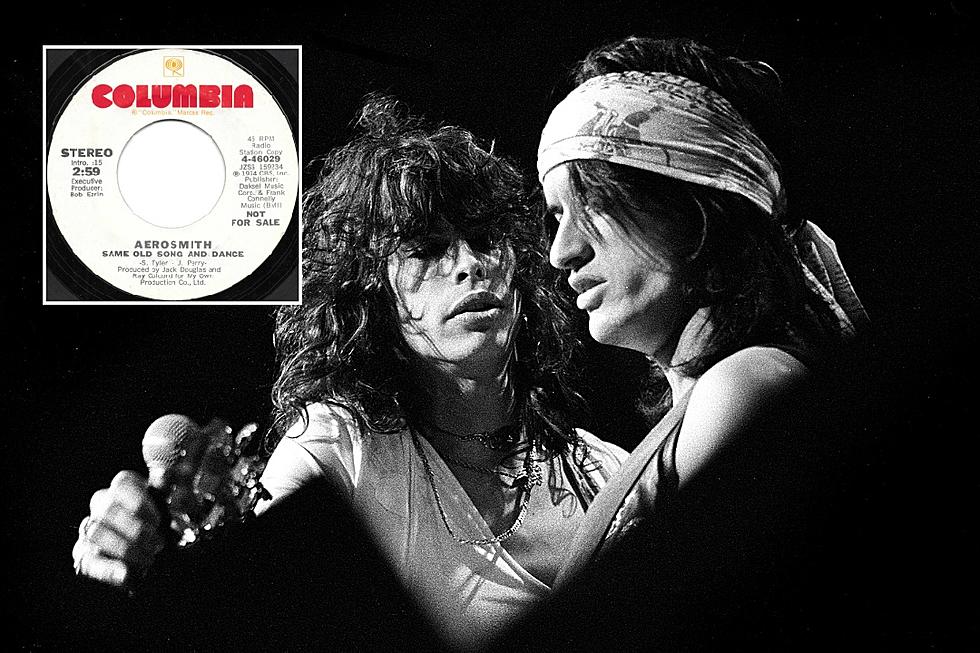
How Aerosmith Came Roaring Back With ‘Permanent Vacation’
Aerosmith made one of the most impressive career comebacks in rock history with the Aug. 18, 1987, release of Permanent Vacation, their ninth studio effort.
Bassist Tom Hamilton argued years later that this album's anniversary makes him "look back to the times when we recorded it, how much fun it was to record it and how exciting it was to realize that we really had a collection of good songs."
However, there's much more to the story than that. For a band who had ruled as perhaps America's biggest rock band of the '70s, the following decade opened with Aerosmith in very bad shape. Substance abuse problems and in-fighting had crippled the group's record and ticket-selling powers. Night in the Ruts had failed to go platinum after its 1979 release, and Aerosmith could be found performing at much smaller venues than they were accustomed to playing.
Things got so bad that both of the group's founding guitarists – Joe Perry and Brad Whitford – were gone by the time 1982's Rock in a Hard Place was released. The duo rejoined Hamilton, drummer Joey Kramer and singer Steven Tyler for 1985's Done With Mirrors, but the album failed to re-connect the band with their fans – and various addictions were still interfering with their lives.
Watch Aerosmith's Video for 'Rag Doll'
Aerosmith got an unexpected second chance at regaining their place in the spotlight when Tyler and Perry's collaboration with rap group Run-D.M.C. on a popular re-recording of Aerosmith's classic hit "Walk This Way." The band decided it was finally time to stare down their problems once and for all, with all five members successfully cleaning up over the next year.
"We crawled out from under our problems and got in touch with ourselves," Whitford said in Aerosmith: The Ultimate Illustrated History of Boston's Bad Boys. "It was a wonderful experience because, after all that abuse, you go dead inside. You go dead musically, too."
Aerosmith also decided to employ outside songwriters while crafting the songs for Permanent Vacation, including noted hit-makers Desmond Child and Jim Vallance.
"We really felt that we had to tear down our creative process, examine it and rebuild it," Hamilton said. "That involved collaborating with people outside of the band and that was a big success for us. All these songs were true collaborations. It wasn’t like ‘Joe Blow’ comes in and teaches Aerosmith their song and we play it how they say it."
Watch Aerosmith's Video for 'Angel'
The band straddles the line between commerce and art very well on Permanent Vacation. True, there are highly polished pop hooks on tracks like "Dude (Looks Like a Lady)" and the power ballad "Angel" that could make devotees of the band's first era a bit uncomfortable, but both songs quickly earned their way into most fans' hearts.
It's also hard to deny that the horn section does anything but add to Tyler's undiminished swagger and wit on the thumping "Rag Doll," or that the back porch harmonica-heavy blues of "Hangman Jury" or the slow-burning "St. John" wouldn't have fit pretty well into the band's '70s set lists.
Permanent Vacation kicks off on a familiar note with an appropriately loose pair of riff-rockers in "Heart's Done Time" and "Magic Touch," and ends with the moody, churning instrumental "The Movie," as if to illustrate that Aerosmith is still very much in touch with their old selves. The group also reveals their love of the Beatles in two places: with a rip-roaring cover of the Fab Four's "I'm Down" and in the opening riff of the textured rocker "Simoriah."
The combination of new and old obviously worked. Permanent Vacation sold over five millions copies, spawned four hit singles, and re-established the group to their rightful place as one of music's biggest concert attractions. Two years later, Aerosmith solidified their comeback with the even better (and bigger-selling) Pump, and have remained among the most popular bands in the world ever since.
Top 100 '70s Rock Albums
Why Don't More People Love This Aerosmith Album?
More From Ultimate Classic Rock









